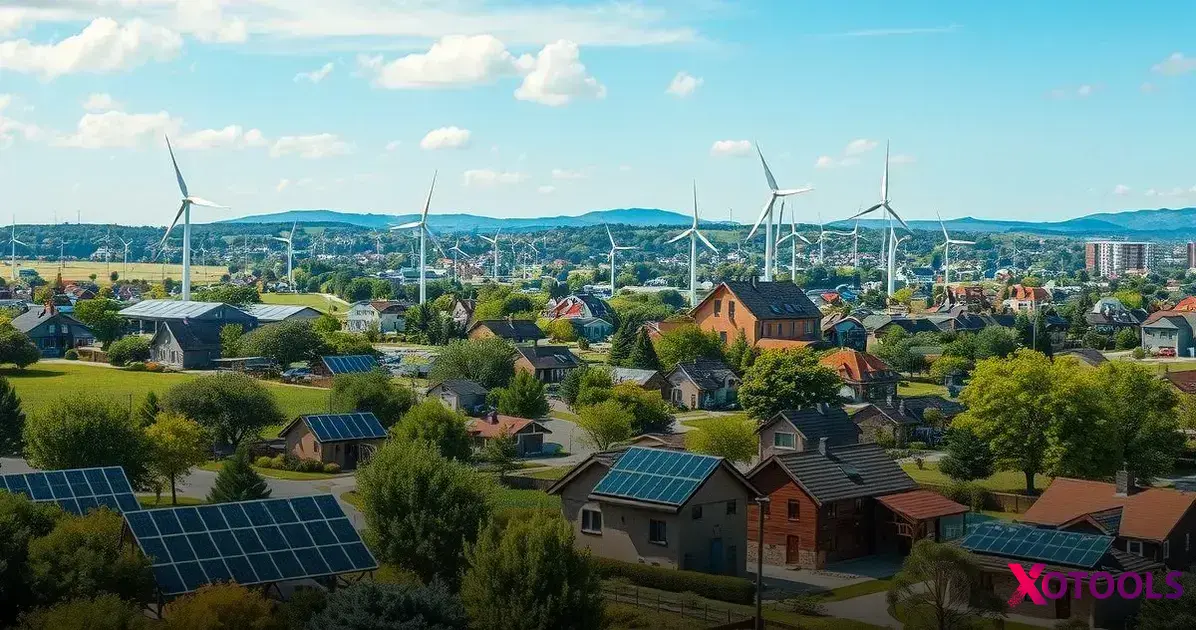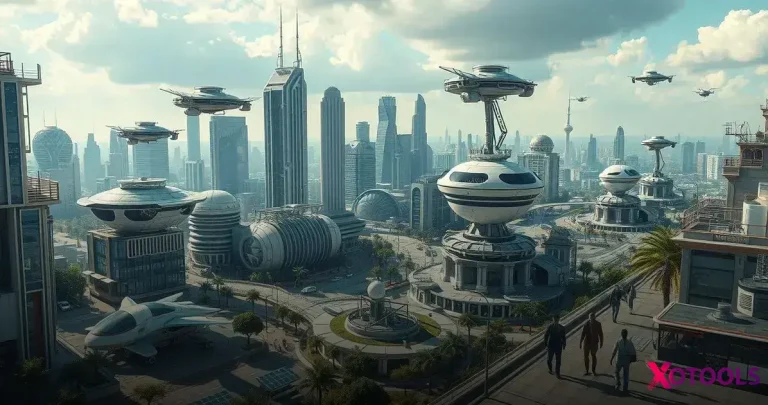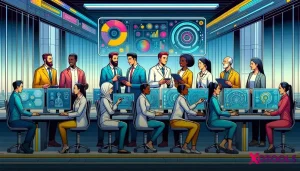ADVERTISEMENT
As there is no specific subtitle provided, I cannot generate relevant content directly related to it. Having a clear subtitle helps me focus on specific themes.
Please give me a subtitle so I can create the appropriate content tailored to your needs.
Understanding the intended topic allows me to explore the future of technology in detail, providing engaging and informative paragraphs.
I’m here to help create valuable insights into what awaits us in the next decades, so please share the subtitle you have in mind!
The future of technology promises unprecedented changes that will transform our lives.
With rapid advancements in areas like artificial intelligence, 5G, and sustainable innovations, our world is on the brink of a technological renaissance.
Emerging Technologies Revolutionizing Industries
Emerging technologies are changing the way industries operate today.
For example, artificial intelligence is helping businesses analyze large amounts of data quickly and efficiently.
This allows companies to make better decisions and improve their services.
Another technology making a big impact is blockchain. This secure technology is helping industries like finance and supply chain management protect transactions.
By ensuring transparency and trust, businesses can reduce fraud and increase efficiency.
Additionally, augmented reality is transforming sectors like retail and real estate. Customers can now visualize products in their homes or take virtual tours of properties.
This interactive experience leads to more informed buying decisions and a better overall experience.
The Role of AI in Shaping Our Future
The role of AI in shaping our future is becoming more significant every day. AI helps us in many ways, from simple tasks to complex decisions.
With its ability to analyze data quickly, AI can assist businesses in making informed choices that lead to success.
In healthcare, AI is changing patient care by predicting illnesses and suggesting treatment plans.
This technology can help doctors diagnose conditions earlier and provide better care to patients.
With AI, healthcare systems can become more efficient and save lives.
Education is another field benefiting from AI. Smart learning tools can adapt to each student’s needs, making learning more personalized and effective.
By using AI, educators can create a better learning environment that prepares students for the challenges of the future.
Sustainability and Future Technologies

Sustainability is becoming a key focus for future technologies.
As we face climate change and environmental challenges, new innovations aim to reduce our carbon footprint.
For instance, companies are developing renewable energy sources like solar and wind power, which can help provide cleaner energy for everyone.
Additionally, sustainable materials are being integrated into product design.
Many businesses are exploring biodegradable and recyclable materials to minimize waste.
This shift not only helps the planet but also meets the growing demand from customers who care about the environment.
Smart technologies are also playing a vital role in promoting sustainability. Smart homes and buildings use sensors and automation to save energy and water.
By adopting these technologies, we can live more sustainably and make better choices for our planet’s future.
The Impact of 5G on Technology Advancements
The launch of 5G technology is revolutionizing how we connect and communicate.
With much faster speeds and lower latency, 5G will enable devices to transfer data more quickly than ever before.
This advancement opens up a world of opportunities for industries that rely heavily on data transmission.
One significant impact of 5G is on the Internet of Things (IoT). With quicker connections, more devices can work together seamlessly.
Imagine smart homes where lights, security systems, and appliances all respond in real-time to your commands. The possibilities for innovation are endless.
Additionally, 5G will enhance areas like virtual and augmented reality. These technologies require a lot of data to function smoothly.
With the support of 5G, we can expect more immersive experiences in gaming, education, and training, making learning and entertainment more engaging and interactive.
Future of Work: Tech’s Influence on Jobs
The future of work is being rapidly reshaped by emerging technologies; understanding the future of technology is key to redefining how, where, and why we work.
Innovations like automation, artificial intelligence (AI), and machine learning are streamlining time-consuming and repetitive tasks.
This boosts productivity and allows workers to focus on more strategic, creative, and high-value activities.
For instance, customer service roles are evolving with AI-powered chatbots handling basic queries, while humans focus on solving complex problems and building relationships.
In manufacturing, robots now manage precision tasks, allowing skilled workers to supervise, maintain, and innovate on production lines.
Technology is also transforming the skills landscape.
Digital fluency is no longer optional, as proficiency in tools like data analytics, coding, cloud platforms, and cybersecurity is becoming essential across industries.
As a result, lifelong learning and continuous upskilling will be critical for workers to stay relevant and competitive.
Platforms offering online certifications, micro-credentials, and interactive training are booming to meet this demand.
Additionally, the rise of remote work—accelerated by the global pandemic and fueled by reliable cloud-based solutions and video conferencing tools—has forever changed the concept of the workplace.
Organizations now embrace hybrid models, giving employees flexibility to work from home, co-working spaces, or across borders.
This shift not only reduces overhead costs for businesses but also opens up global talent pools and enhances employee satisfaction.
The gig economy is another growing trend.
Freelancers, consultants, and digital nomads are leveraging online platforms to offer their skills on demand, fostering a more flexible and autonomous workforce.
This also presents new challenges in terms of benefits, job security, and labor rights, which industries and governments must address.
In essence, the future of work promises greater agility, collaboration, and global reach, but it also requires proactive adaptation.
Success will depend on our ability to embrace innovation while investing in education, digital infrastructure, and inclusive policies that support workers across all sectors.
Conclusion
The future of technology is evolving at an extraordinary pace, unlocking innovative solutions to complex problems, enhancing our daily lives, and transforming industries worldwide.
From AI and 5G connectivity to green innovations and remote work tools, each advancement is driving greater efficiency, interconnectivity, and opportunity across all sectors.
As we progress, it’s essential to embrace these breakthroughs with a strong commitment to ethics, sustainability, and digital inclusion.
This approach lays the foundation for a smarter, more equitable, and resilient global society.
The digital revolution goes beyond speed and convenience—it’s about building a future where technology empowers both people and the planet to thrive together.
Frequently Asked Questions
What is JSON?
JSON is a lightweight data interchange format.
How does JSON Schema work?
JSON Schema is a way to describe the structure of JSON data.
What data types are supported by JSON?
JSON supports strings, numbers, objects, arrays, booleans, and null values.
What is JSON used for?
JSON is primarily used to transmit data between a server and a client.
Can objects be nested in JSON?
Yes, objects and arrays can be nested within JSON.







